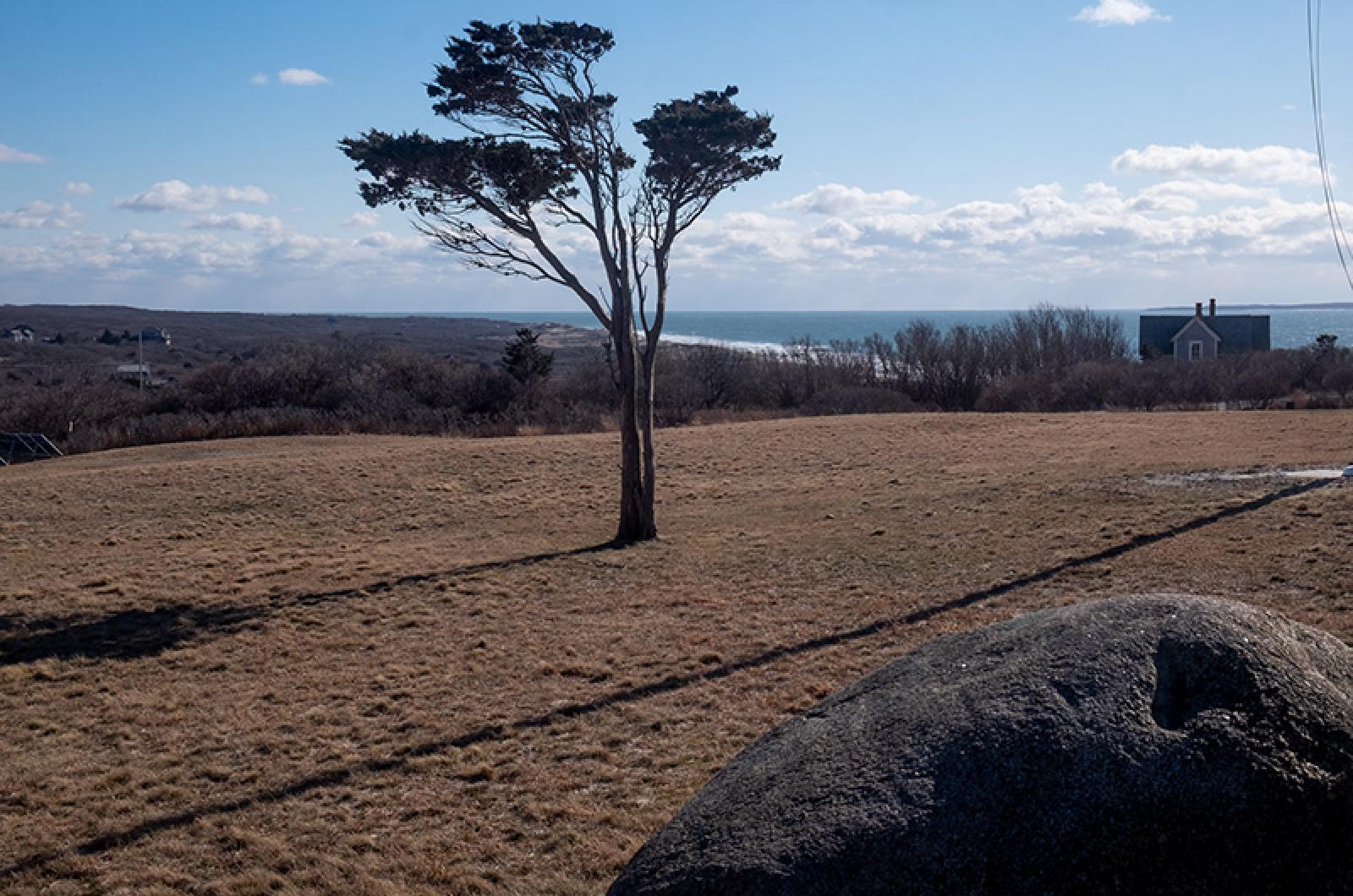Citing concerns about plans by the Wampanoag tribe to build a class two gambling facility in Aquinnah with no oversight, the town selectmen have turned to the Martha’s Vineyard Commission.
In a letter to the commission last month the selectmen asked the commission to exercise its authority under its enabling act and review the proposed bingo hall as a development of regional impact (DRI).
“It is the town’s position that local and MVC permits are required for this facility,” the selectmen wrote. “As you are aware, the MVC has jurisdiction over these lands pursuant to its enabling act. In our view, there has never been a proposed development contemplated in Aquinnah that could have more potential regional impacts than this proposed gaming facility.”
The Jan. 16 letter to the MVC is the latest volley from the town in a recent exchange of written correspondence with the tribe over casino plans.
The tribe was cleared to build a bingo hall on tribal lands in Aquinnah a little more than a year ago when the U.S. Supreme Court declined to hear further appeal in a federal case that upheld the tribe’s sovereign rights to build the facility.
Since then only scant details have emerged about the plans. Late last summer tribal leaders announced a partnership with the Chickasaw Nation Gaming Corporation of Oklahoma to build the gambling facility.
In early December tribal chairman Cheryl Andrews-Maltais and an attorney for the tribe met with Aquinnah selectman Jim Newman and town counsel Ronald H. Rappaport to discuss the casino plans. In a Jan. 8 letter to Ms. Maltais-Andrews that the selectmen made public, the board requested confirmation of the details of that discussion, including:
• That the new facility is being planned for the former Weiner property off Black Brook Road now owned by the tribe and taken into federal trust.
• That the 10,000-square-foot facility will be made from so-called Sprung construction, a trademarked fabric-covered structure.
• That the facility will include no restaurant but be serviced by food trucks.
• That the tribe intends to apply for no permits except a beer and wine license from the town.
The letter asked for a response by Jan. 15.
On Jan. 16 the selectmen sent the letter to the commission seeking a DRI review.
On Jan. 18, Ms. Maltais sent a letter of reply to the Jan. 8 letter, requesting another meeting between selectman Jim Newman and/or Gary Haley and town counsel Ron Rappaport.
“We are still in the planning stages but appreciate the open dialogue we had with Jim Newman and Ron Rappaport, and we look forward to continuing the conversation,” she wrote.
The letter also suggests that the third selectman Juli Vanderhoop recuse herself from the discussions between the town and the tribe over the casino, citing a reported legal dispute between Ms. Vanderhoop and the tribe over a commercial lease at the Cliffs.
“Given her conflicting interests, the tribe does not believe it is appropriate to discuss this or any other tribal matter with [Ms. Vanderhoop],” Ms. Andrews-Maltais wrote in part.
Ms. Vanderhoop, who owns the Orange Peel Bakery in Aquinnah, is the only selectman who is a member of the tribe. She has been openly critical of the tribe’s closed-door process surrounding the bingo hall plans.
Contacted last week for comment about the town’s letter to the commission seeking a DRI review, Ms. Andrews-Maltais said she had not seen it.
Commission executive director Adam Turner said the letter had been received but not yet discussed by the commission.
Created by an act of the state legislature in 1974, the commission has unique powers to review and regulate developments.
MVC chairman Doug Sederholm said if the commission does decide to review the casino plans, it likely will be through the commission’s two-step concurrence process, where the full commission first takes a formal vote on whether a project meets the criteria to be reviewed as a DRI.
If the commission does vote to review the project, the process would be carried out like other regional development reviews, he said, with a full public hearing, testimony, deliberations and eventually a vote.
“We would look at the regional impacts,” Mr. Sederholm said. “One of the charming aspects of Aquinnah is that it is quite remote. If people are coming to this facility, it will mean that they will have to travel through many towns to get to the facility.”
Mr. Turner concurred on the process.
“Over the years, a lot of big projects have come through our doors, and this would just be another one,” he said.






Comments (5)
Comments
Comment policy »